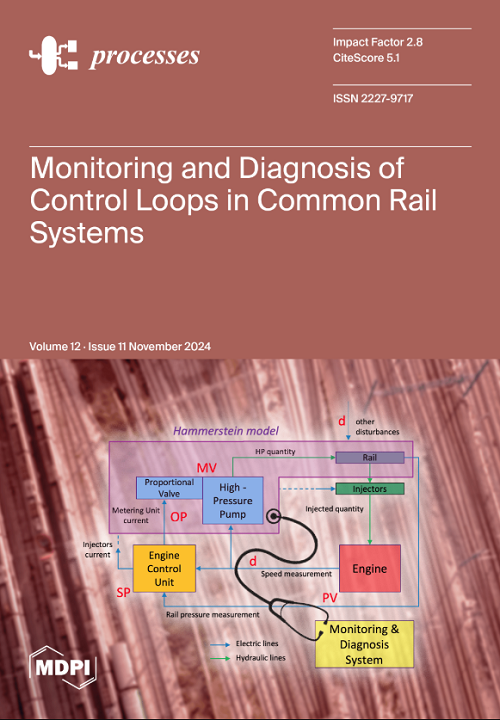生物炭添加堆肥对土壤中某些酶活性的影响
IF 2.8
4区 工程技术
Q2 ENGINEERING, CHEMICAL
引用次数: 0
摘要
本研究探讨了生物炭作为农业土壤补充剂对土壤质量指标的影响,特别是对密苏里地区酶活性的影响。虽然生物炭对土壤容重、土壤有机碳和渗透的益处已经得到证实,但其对该地区土壤酶活性的影响仍未得到充分探索。我们进行了一项为期三年的实地调查,采用了六种处理方法(堆肥、生物炭、堆肥 + 生物炭、生物炭 + 堆肥茶、羊茅和对照)来评估其对β-葡萄糖苷酶 (BG)、酸性和碱性磷酸酶 (ACP-ALP)、芳基硫酸酶 (ARS)、脱氢酶 (DG)、芳基酰胺酶 (AMD)、纤维素酶 (CLS) 和脲酶 (URS) 等酶的影响。此外,还测定了土壤 pH 值、有机质 (OM) 和阳离子交换容量 (CEC)。结果表明,与其他处理相比,堆肥和生物炭处理大大提高了土壤酶的活性,施氮进一步提高了酶的活性。土壤 pH 值、OM 和 CEC 都是决定酶活性的重要因素,其中 BG 与 ACP 和 AMD 有很强的正相关性(99.5%)。这项研究表明,堆肥和生物炭添加剂能显著改善土壤理化和生物特性,从而提高土壤健康水平,帮助农民实现可持续的土壤管理。本文章由计算机程序翻译,如有差异,请以英文原文为准。
Effects of Biochar-Amended Composts on Selected Enzyme Activities in Soils
This study examines the effect of biochar as an agricultural soil supplement on soil quality indicators, specifically enzyme activity in Missouri regions. While the benefits of biochar on soil bulk density, soil organic carbon, and infiltration have been established, its effect on soil enzyme activity has remained underexplored in this region. A three-year field investigation was conducted with six treatments (compost, biochar, compost + biochar, biochar + compost tea, fescue, and control) to evaluate the effects on enzymes such as β-glucosidase (BG), acid and alkaline phosphatases (ACP-ALP), arylsulfatase (ARS), dehydrogenases (DG), arylamidase (AMD), cellulase (CLS), and urease (URS). Furthermore, soil pH, organic matter (OM), and cation exchange capacity (CEC) were determined. The results showed that compost and biochar treatments considerably increased soil enzyme activity compared to other treatments, with nitrogen application further increasing enzyme activity. Soil pH, OM, and CEC were all important determinants in determining enzyme activity, with BG demonstrating strong positive associations with ACP and AMD (99.5%). This study shows that compost and biochar amendments significantly improve soil physicochemical and biological properties, thereby enhancing soil health and assisting farmers’ sustainable soil management practices.
求助全文
通过发布文献求助,成功后即可免费获取论文全文。
去求助
来源期刊

Processes
Chemical Engineering-Bioengineering
CiteScore
5.10
自引率
11.40%
发文量
2239
审稿时长
14.11 days
期刊介绍:
Processes (ISSN 2227-9717) provides an advanced forum for process related research in chemistry, biology and allied engineering fields. The journal publishes regular research papers, communications, letters, short notes and reviews. Our aim is to encourage researchers to publish their experimental, theoretical and computational results in as much detail as necessary. There is no restriction on paper length or number of figures and tables.
 求助内容:
求助内容: 应助结果提醒方式:
应助结果提醒方式:


